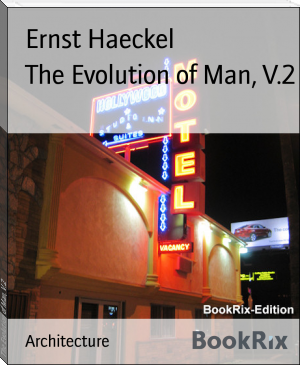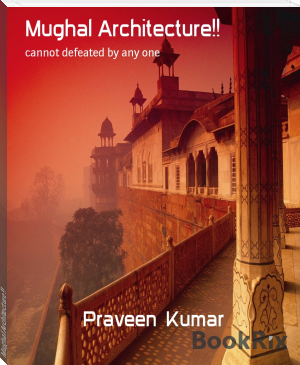The Brethren - H. Rider Haggard (love novels in english .TXT) 📗

- Author: H. Rider Haggard
Book online «The Brethren - H. Rider Haggard (love novels in english .TXT) 📗». Author H. Rider Haggard
"Rosamund?" answered the old man in the same dreamy voice. "Her rank is high enough--too high, far too high for safety." And turning, he left the little chamber.
"Well, cousin," said Wulf, "if you cannot be a knight, at least you can lessen all this dangerous rank of yours by becoming a knight's wife." Whereat Rosamund looked at him with indignation which struggled with a smile in her dark eyes, and murmuring that she must see to the making of Godwin's broth, followed her father from the place.
"It would have been kinder had she told us that she was glad," said Wulf when she was gone.
"Perhaps she would," answered his brother, "had it not been for your rough jests, Wulf, which might have a meaning in them."
"Nay, I had no meaning. Why should she not become a knight's wife?"
"Ay, but what knight's? Would it please either of us, brother, if, as may well chance, he should be some stranger?"
Now Wulf swore a great oath, then flushed to the roots of his fair hair, and was silent.
"Ah!" said Godwin; "you do not think before you speak, which it is always well to do."
"She swore upon the quay yonder"--broke in Wulf.
"Forget what she swore. Words uttered in such an hour should not be remembered against a maid."
"God's truth, brother, you are right, as ever! My tongue runs away with me, but still I can't put those words out of my mind, though which of us--"
''Wulf!''
"I mean to say that we are in Fortune's path to-day, Godwin. Oh, that was a lucky ride! Such fighting as I have never seen or dreamed of. We won it too! And now both of us are alive, and a knighthood for each!"
"Yes, both of us alive, thanks to you, Wulf--nay, it is so, though you would never have done less. But as for Fortune's path, it is one that has many rough turns, and perhaps before all is done she may lead us round some of them."
"You talk like a priest, not like a squire who is to be knighted at the cost of a scar on his head. For my part I will kiss Fortune while I may, and if she jilts me afterwards--"
"Wulf," called Rosamund from without the curtain, "cease talking of kissing at the top of your voice, I pray you, and leave Godwin to sleep, for he needs it." And she entered the little chamber, bearing a bowl of broth in her hand.
Thereon, saying that ladies should not listen to what did not concern them, Wulf seized his crutch and hobbled from the place.
Chapter Three(The Knighting of the Brethren)
Another month had gone by, and though Godwin was still somewhat weak and suffered from a headache at times, the brethren had recovered from their wounds. On the last day of November, about two o'clock in the afternoon, a great procession might have been seen wending its way from the old Hall at Steeple. In it rode many knights fully armed, before whom were borne their banners. These went first. Then came old Sir Andrew D'Arcy, also fully armed, attended by squires and retainers. He was accompanied by his lovely daughter, the lady Rosamund, clad in beautiful apparel under her cloak of fur, who rode at his right hand on that same horse which had swum Death Creek. Next appeared the brethren, modestly arrayed as simple gentlemen, followed each of them by his squire, scions of the noble houses of Salcote and of Dengie. After them rode yet more knights, squires, tenants of various degree, and servants, surrounded by a great number of peasantry and villeins, who walked and ran with their women folk and children.
Following the road through the village, the procession turned to the left at the great arch which marked the boundary of the monk's lands, and headed for Stangate Abbey, some two miles away, by the path that ran between the arable land and the Salt marshes, which are flooded at high tide. At length they came to the stone gate of the Abbey, that gave the place its name of Stangate. Here they were met by a company of the Cluniac monks, who dwelt in this wild and lonely spot upon the water's edge, headed by their prior, John Fitz Brien. He was a venerable, white-haired man, clad in wide-sleeved, black robes, and preceded by a priest carrying a silver cross. Now the procession separated, Godwin and Wulf, with certain of the knights and their esquires, being led to the Priory, while the main body of it entered the church, or stood about outside its door.
Arrived in the house, the two knights elect were taken to a room where their hair was cut and their chins were shaved by a barber who awaited them. Then, under the guidance of two old knights named Sir Anthony de Mandeville and Sir Roger de Merci, they were conducted to baths surrounded with rich cloths. Into these, having been undressed by the squires, they entered and bathed themselves, while Sir Anthony and Sir Roger spoke to them through the cloths of the high duties of their vocation, ending by pouring water over them, and signing their bare bodies with the sign of the Cross. Next they were dressed again, and preceded by minstrels, led to the church, at the porch of which they and their esquires were given wine to drink.
Here, in the presence of all the company, they were clothed first in white tunics, to signify the whiteness of their hearts; next in red robes, symbolical of the blood they might be called upon to shed for Christ; and lastly, in long black cloaks, emblems of the death that must be endured by all. This done, their armour was brought in and piled before them upon the steps of the altar, and the congregation departed homeward, leaving them with their esquires and the priest to spend the long winter night in orisons and prayers.
Long, indeed, it was, in that lonesome, holy place, lit only by a lamp which swung before the altar. Wulf prayed and prayed until he could pray no more, then fell into a half dreamful state that was haunted by the face of Rosamund, where even her face should have been forgotten. Godwin, his elbow resting against the tomb that hid his father's heart, prayed also, until even his earnestness was outworn, and he began to wonder about many things.
That dream of his, for instance, in his sickness, when he had seemed to be dead, and what might be the true duty of man. To be brave and upright? Surely. To fight for the Cross of Christ against the Saracen? Surely, if the chance came his way. What more? To abandon the world and to spend his life muttering prayers like those priests in the darkness behind him? Could that be needful or of service to God or man? To man, perhaps, because such folk tended the sick and fed the poor. But to God? Was he not sent into the world to bear his part in the world--to live his full life? This would mean a half-life--one into which no woman might enter, to which no child might be added, since to monks and even to certain brotherhoods, all these things, which Nature decreed and Heaven had sanctified, were deadly sin.
It would mean, for instance, that he must think no more of Rosamund. Could he do this for the sake of the welfare of his soul in some future state?
Why, at the thought of it even, in that solemn place and hour of dedication, his spirit reeled, for then and there for the first time it was borne in upon him that he loved this woman more than all the world beside--more than his life, more, perhaps, than his soul. He loved her with all his pure young heart--so much that it would be a joy to him to die for her, not only in the heat of battle, as lately had almost chanced on the Death Creek quay, but in cold blood, of set purpose, if there came need. He loved her with body and with spirit, and, after God, here to her he consecrated his body and his spirit. But what value would she put upon the gift? What if some other man--?
By his side, his elbows resting on the altar rails, his eyes fixed upon the beaming armour that he would wear in battle, knelt Wulf, his brother--a mighty man, a knight of knights, fearless, noble, open-hearted; such a one as any woman might well love. And he also loved Rosamund. Of this Godwin was sure. And, oh! did not Rosamund love Wulf? Bitter jealousy seized upon his vitals. Yes; even then and there, black envy got hold of Godwin, and rent him so sore that, cold as was the place, the sweat poured from his brow and body.
Should he abandon hope? Should he fly the battle for fear that he might be defeated? Nay; he would fight on in all honesty and honour, and if he were overcome, would meet his fate as a brave knight should--without bitterness, but without shame. Let destiny direct the matter. It was in the hands of destiny, and stretching out his arm, he threw it around the neck of his brother, who knelt beside him, and let it rest there, until the head of the weary Wulf sank sleepily upon his shoulder, like the head of an infant upon its mother's breast.
"Oh Jesu," Godwin moaned in his poor heart, "give me strength to fight against this sinful passion that would lead me to hate the brother whom I love. Oh Jesu, give me strength to bear it if he should be preferred before me. Make me a perfect knight--strong to suffer and endure, and, if need be, to rejoice even in the joy of my supplanter."
At length the grey dawn broke, and the sunlight, passing through the eastern window, like a golden spear, pierced the dusk of the long church, which was built to the shape of a cross, so that only its transepts remained in shadow. Then came a sound of chanting, and at the western door entered the Prior, wearing all his robes, attended by the monks and acolytes, who swung censers. In the centre of the nave he halted and passed to the confessional, calling on Godwin to follow. So he went and knelt before the holy man, and there poured out all his heart. He confessed his sins. They were but few. He told him of the vision of his sickness, on which the Prior pondered long; of his deep love, his hopes, his fears, and his desire to be a warrior who once, as a lad, had wished to be a monk, not that he might shed blood, but to fight for the Cross of Christ against the Paynim, ending with a cry of--
"Give me counsel, O my father. Give me counsel."
"Your own heart is





Comments (0)